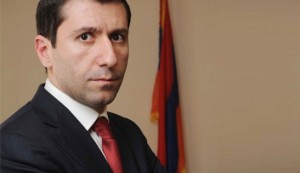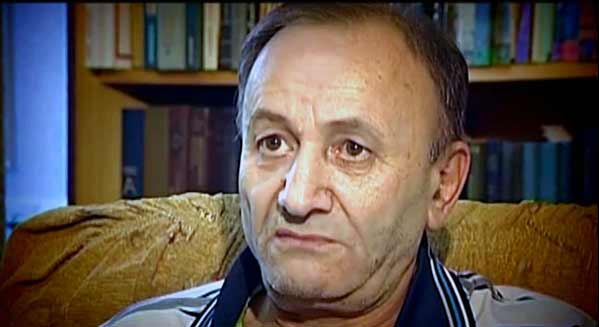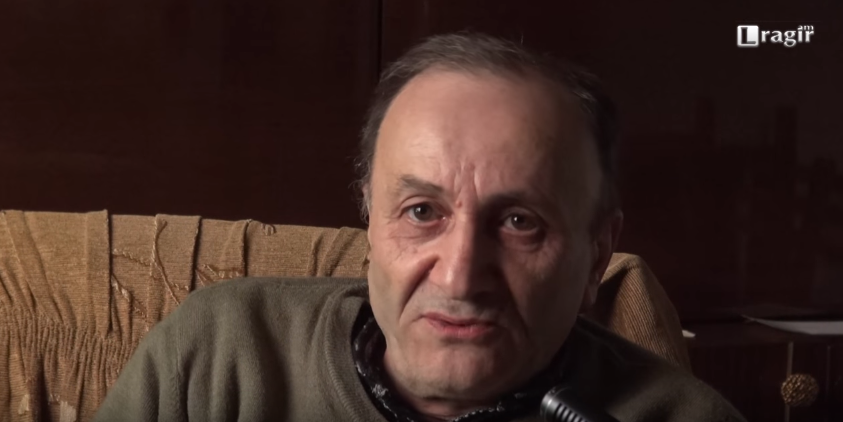An Open Letter to the Ombudsman

Anyone who is more or less informed, after reading the article “With the intervention of Ombudsman the conditions of disciplinary isolation cells (isolators) were considerably improved” posted in the News section of the official website of the RA Ombudsman, should be at least puzzled. The article talks about the successful cooperation between the Ombudsman and the Ministry of Defense of Republic of Armenia.
“Deputy Ombudsman for Military Affairs Armen Grigoryan voiced the necessity for replacing the beds attached on the Military police disciplinary isolation cell walls and lockable metal beds and securing each soldier with minimum living space provided by law. The Ministry of Defense gave proper solutions to these problems: all necessary types of beds were installed and the required living space was provided. As a result of the cooperation between the Ombudsman and the Ministry of Defense, a number of practical and legal problems in the RA disciplinary cells were revealed and most of these problems have already been resolved.”
Our concern is that disciplinary isolation cells should not exist in the Military Police and Ministry of Defense at all. Based on the National Assembly decision in 2012, the previous disciplinary statute of 1996 was revised. The main reason why it was revised was that the previous statute was in contradiction with the RA Constitution and International laws, particularly because it assumed the existence of disciplinary cells. In fact
According to Article 83.5, Point 2 and Point 6 of the RA Constitution, the issues below shall be set forth exclusively by the laws of the Republic of Armenia
2) restrictions on the rights and freedoms of physical bodies and legal entities, their obligations, as well as forms, extent and procedure for liability thereof, means of compulsion and the procedure for such…
6) cases, procedure and terms for criminal, administrative, economic(property) or disciplinary liability
According to Article 5, Point 2 of the RA Constitution, state and local self-government bodies and public officials are competent to perform only such acts for which they are authorized by Constitution or laws!
Based on the new disciplinary statute, and as a result of unconstitutional and arbitrary decisions of the commanders, the disruptive soldiers should bear sanctions in the disciplinary battalion.
The comment above suggests elimination of disciplinary detention cells in the Military Police and Ministry of Defense. It was simply bizarre to learn that the Human Rights Defender
(an official, who, acting pursuant to the Constitution and the Law of the Republic of Armenia, as well as principles and norms of International Law and guided by social justice and fundamental principles of social coexistence protects the human rights and fundamental freedoms violated by central and local government agencies or their officials; is independent in exercising his powers, is subject only to the Constitution and laws of the Republic of Armenia, as well as the norms and principles of international law, is not subject to any state or local government agency or official)
in cooperation with the Ministry of Defense failed to identify the issue that in fact isolators are illegal not to help to improve the living conditions in these isolators.
Peace Dialogue NGO asked the RA Human Rights Defender’s office to clarify what exactly the article was about: particularly which isolators were mentioned in the article? Why should the living conditions be improved there, instead of completely removing the isolators?
In case the abovementioned is simply a misunderstanding caused by inaccurate article posted in the website, then the organization kindly asks for some clarification on what was supposed to be written in the article and what practical and legal problems connected with the RA isolators does the article mention exactly?
In response to Peace Dialogue’s enquiry, the Ombudsman answered the following: “…the official announcement is about the measures taken to improve the conditions of the detentions where arrested soldiers and soldiers sentenced to detention by court decision are kept.” He also quoted a government decision adopted in 2008, whereas, as it was already mentioned, the new RA Ministry of Defense Disciplinary Statute of Armed Forces was adopted in 2012 and in Article 23( Article 23: Disciplinary Penalties given to soldiers) of the same statute which states that nothing is mentioned about MoD garrison isolators.
In the second letter addressed to the Ombudsman, Peace Dialogue NGO wanted to find out why the Human Right Defender should cooperate with the Ministry of Defense and even evaluate the “Adequate responsiveness of Ministry of Defense towards the recommendations to improve the legal status of soldiers” as a positive step, when on January 25, 2001 the Republic of Armenia, became a full member of the Council of Europe and among other responsibilities embarked on reforms to the detention centers.
In particular, point f. of the responsibilities section clearly mentions:
“to adopt, within six months of its accession, the law on the transfer of responsibility for the prison system, including pre-trial detention centers and work colonies, from the Ministry of Interior to the Ministry of Justice, and to ensure the effective implementation of this law within six months after it has been adopted, except as regards the effective transfer of the pre-trial detention centers and work colonies, which must be implemented within one year after the Law has been adopted”.
According to published reports, the process of transferring the prison system, including pre-trial detention centers and work colonies, from the Ministry of Interior to the Ministry of Justice, was over in the January of 2003. All necessary regulations for the improvement of the prison system were adopted under RA Law on treatment of arrestees and detainees (6.02.02), RA Law on Penitentiary Service (15.12.03), etc). On November 10, 2004 RA National Assembly adopted the RA Penitentiary Code regarding the treatment of detainees.
Taking into consideration the aforementioned, the second enquiry of Peace Dialogue had the same questions as the previous one, with one exception: in this correspondence we asked the Ombudsman to “Please explain why the conditions in the MoD military disciplinary isolators (See the article “With the intervention of Ombudsman the conditions of disciplinary isolations were considerably improved” posted in the official website of RA Ombudsman) should be improved, instead of completely removing the isolators.” If it talks about “…the measures taken to improve the conditions of the detentions where arrested soldiers and soldiers sentenced to detention by court decision are kept”, as you claim in your response, then don’t you think it is more appropriate to cooperate with the Ministry of Justice, rather than the Ministry of Defense?”
Deputy Ombudsman for Military Affairs Armen Grigoryan called Peace Dialogue office and inquired what exactly the cause for our concern was and what exactly we are trying to find out.
After a long discussion, the Ombudsman sent a response letter addressed to Peace Dialogue. In this correspondence, it turned out that the announcement was neither about the Military Police disciplinary isolators (as it was mentioned in the article) nor about the conditions of the detentions where arrested soldiers and soldiers sentenced to detention by court decision are kept (as it was formulated in the first explanation). Instead,
“…the announcement talked about the results of the measures taken to solve the identified problems based on the recommendations which were prepared after Ombudsman’s office staff did monitoring and visited Kanaz Hospital, Disciplinary Battalion, as well as the RA MoD Lori region garrison’s Vanadzor department, and Syunik region.”
It was also mentioned in the letter that the standards of The European Committee for the Prevention of Torture and Inhuman or Degrading Treatment or Punishment (CPT) are applied to all persons deprived of their liberty, including the armed forces, regardless of detention centers’ departmental subordination. Therefore, the recommendations aimed at improving the living conditions and ensuring the rights of persons deprived of liberty.
From this sentence we may assume that the Ombudsman’s office is not concerned at all whether the existence of any isolator or detention center is prescribed by constitution or certain law. They are only concerned about the living condition of those who are kept there. Thus, if someone suddenly decides to “furnish” an isolator in his/her cellar and forces his/her neighbors (or not all of them, only those he/she dislikes) to “be kept there”, then Human rights defenders and law enforcement agencies should be concerned only with the availability of the window and the bed or the quality of food, nothing else.
However, to somehow make their argument stronger, in the letter, they informed us that Peace Dialogue’s concern that the detention centers for the arrested soldiers are under RA Ministry of Defense, finally reached its aim and this legal issue is already being examined by Human Rights Defender’s office. There is still hope!
Peace Dialogue NGO’s military expert Ruben Martirosyan also thinks that the fact that the soldiers are kept in the isolators contradicts the RA Constitution since according the Constitution, the person cannot be deprived of or restricted in his/her liberty by the procedure defined by law.
“Thus, all the cases when the soldier is kept in the isolator for some violations of law or misdemeanor are vivid illegalities.
Therefore, it is funny that the Ombudsman and its staff talk about improving the living conditions in the isolators, when, in fact, they should talk about eliminating these structures and their unlawfulness. There are Military Police isolators in all the regions where the soldiers are being beaten up by the RA MoD Investigative Service and Military Police officers and false testimonies are extracted from them. As a result of such false testimonies, deliberate murders in the army are being presented as suicides, negligently committed killings or murders committed by enemy snipers.”-said R. Martirosyan. There are numerous facts in the cases of Sargis Sahakyan, Torgom Sarukhanyan, and Artak Nazaryan when the soldiers were put under pressure in the isolators.”
We would like this article to be seen as an open letter addressed to the RA Human Right Defender and his staff. In the letters from the Ombudsman and his staff there are different arguments, and different excuses, which, as we have already mentioned, often contradict each other. Even after receiving the response letters, it still remains unclear: We are still puzzled.
-According to Ombudsman, are there illegally functioning isolators under Military Police and RA Ministry of Defense or not?
– Is the Human Rights defender informed whether they exist or not? Can they exist or not?
We expect the answers to these questions to be as clear as possible and as public as possible.
P.S. In a letter sent to Peace Dialogue NGO on Decmeber 3, 2014 and received on December 10, 2014, the Human Rights Defender’s office informed us that in order to give a comprehensive answer to all the questions concerning the disciplinary isolation cells (isolators) raised in the open letter, the office has sent an inquiry to the RA Ministry of Defense. The letter went on to say that, “As soon as we receive an official answer from the ministry, we will send a response to you”.
Posted 25 November, 2014















